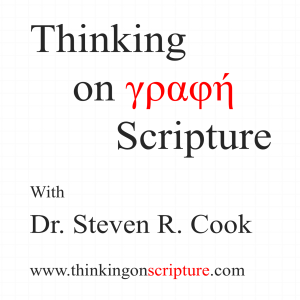
Saturday Jan 11, 2020
Haggai 2:10-23
God spoke to Haggai and gave him two messages on the same day. The first message was to the priests, informing them that the nation’s disobedience in not building the temple was the reason God withheld His blessings, which He reinstated once they returned to Him. The Second message was to Zerubbabel, the governor of Judah, encouraging him that God had chosen him for a special purpose and would use him as a signet ring. In the first message, God spoke through Haggai to the priests concerning things holy (Hag 2:10-11), asking, “If a man carries holy meat in the fold of his garment, and touches bread with this fold, or cooked food, wine, oil, or any other food, will it become holy? And the priests answered, ‘No.’” (Hag 2:12). Holy meat was set apart for sacrifice to the Lord and to be used as He instructed (Lev 3:1-17). The priests correctly understood that if something holy touched something common, the holiness was not transferable. Haggai then posed another question, asking, “If one who is unclean from a corpse touches any of these, will the latter become unclean?” And the priests answered, ‘It will become unclean’” (Hag 2:13). Again, the priests answered correctly, that uncleanness is transferable. A similar principle is found in everyday life, as sickness can be transferred, but not health; and bad food will ruin good food if it comes into contact; and dirty water will contaminate clean water; and bad associations will corrupt good associations; whereas the reverse of all these is not possible. Haggai then explained, “‘So is this people. And so is this nation before Me,’ declares the LORD, ‘and so is every work of their hands; and what they offer there is unclean’” (Hag 2:14). The point of Haggai’s message was that the nation had become spiritually defiled because of their disobedience to the Lord, which in turn contaminated all their work, including the sacrifices they were offering to God. Previously, for sixteen years, while the temple remained unfinished, God had smitten their crops, reducing their yield by 50 and 60 percent, in an effort to correct their behavior and draw them back to Him (Hag 2:15-17). Finally, they responded and turned their hearts back to the Lord and became obedient to His will, and three times He told them He would bless the work of their hands, “from this day onward” (Hag 2:15; 18-19). It should be noted that the season for sowing was several months out, so God’s promised blessings did not immediately appear, but took time, following the normal cycle of planting and harvesting. Their blessing would come because they applied the principle of putting God first in their lives (see Matt 6:33). Next, God gave Haggai a second message on the same day which was directed at Zerubbabel, the nation’s governor (Hag 2:20). Zerubbabel was the grandson of Jehoiachin (aka Jeconiah/Coniah) and in the royal line of King David (Matt 1:12); however, rather than wearing a crown, he struggled as the governor of a nation recently returned from captivity. But God singled him out for an encouraging message about the nation’s future stability, saying, “I am going to shake the heavens and the earth. I will overthrow the thrones of kingdoms and destroy the power of the kingdoms of the nations; and I will overthrow the chariots and their riders, and the horses and their riders will go down, everyone by the sword of another” (Hag 2:21-22). This will happen at the Second Coming of Christ when He puts down the nations of the world and establishes His millennial kingdom. God also honors Zerubbabel by calling him “My servant” and declaring “I will make you like a signet ring, for I have chosen you” (Hag 2:23). Zerubbabel would be God’s servant who carried His authority to do His will. Most Bible scholars see Zerubbabel as an archetype of Jesus who will come and reign, but it is possible this speaks of his future resurrection with a place of prominent rulership under Messiah. Either way, it is clear that God is the One who “removes kings and establishes kings” (Dan 2:21), and all the kingdoms of this world are under His control (Dan 2:36-45). What God has promised, He will bring to pass (Isa 46:9-11).
No comments yet. Be the first to say something!